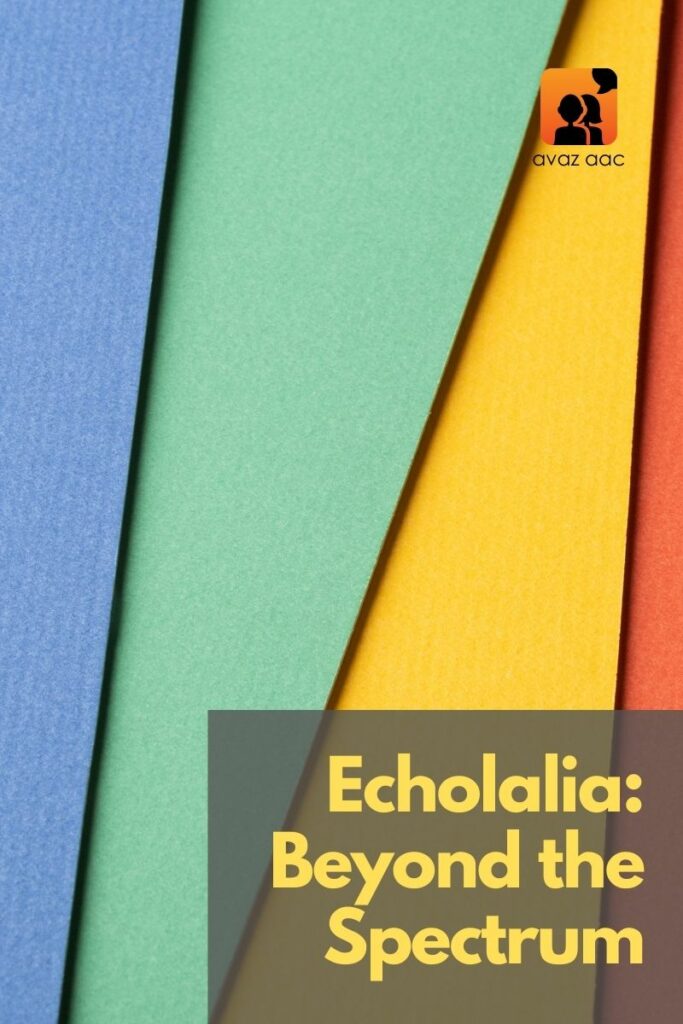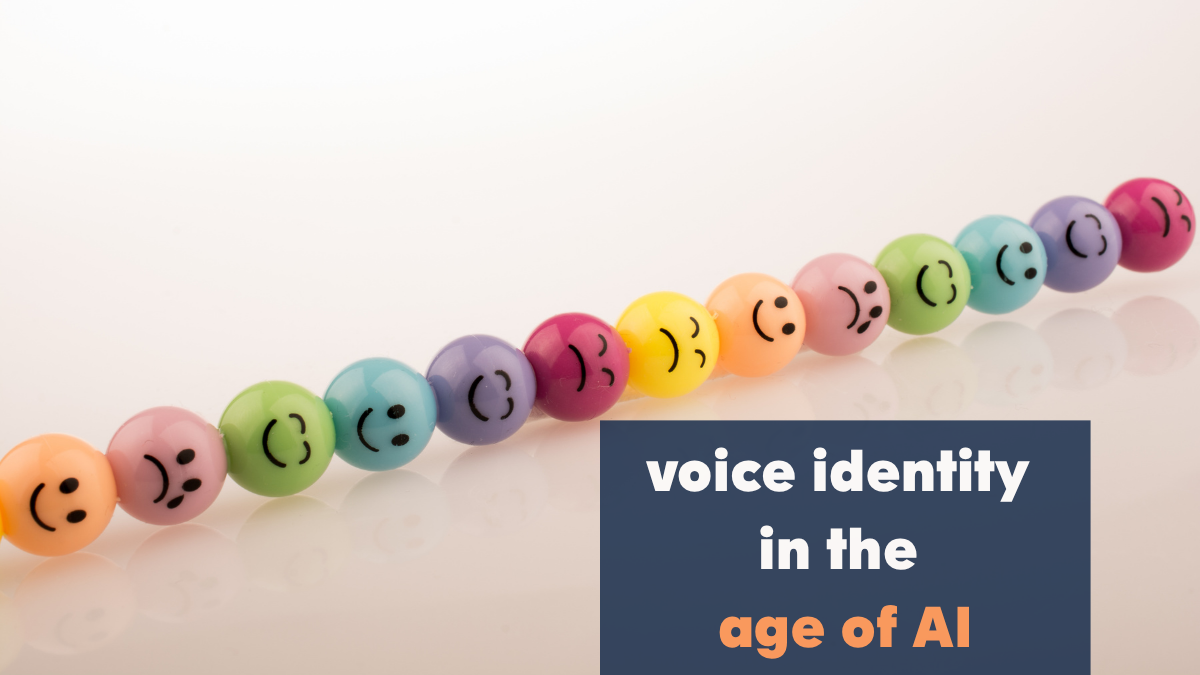Many early child language researchers are acknowledging the role of echolalia as an important milestone in the process of language development. This blog throws light on the occurrence of echolalia outside the autism spectrum, and how it often goes unnoticed.


Echolalia is Everywhere!
Children often seem to babble syllables or sounds initially. They eventually start repeating words that they hear. For instance, say a child hears the word ‘mama’ repeatedly. Soon this child will start to say ‘mama’.
In some cases the babble can sound like a string of syllables. If we notice closely, it may rhyme with some of the more commonly used phrases at home. This sounds a lot like echolalia!
As we have discussed previously, Echolalia is the repetition of vocal sounds, words or phrases that may appear out of context.
It is an echo-phenomena. To put it simply, it is an imitative behavior which we commonly seen in children who are learning to speak. Imitation is a critical and necessary milestone of social learning and language development. Each one of us begins learning by imitating the behaviors of others. We do this with actions as well as words, in an attempt to acquire new behaviors of our own.
Language Acquisition
Human brains acquire language in two ways, these are:
- Analytic Language Acquisition
- Gestalt Language Acquisition
Analytic Language Acquisition starts with words as the smallest unit. On the other hand, Gestalt Language Acquisition characteristically begins with chunks of words.
Gestalt Language acquisition is also known as Natural Language Acquisition (NLA). Those who acquire language in this manner are called Gestalt Language Processors (GLPs).
At about the age of three, children begin to develop self-regulation. When this happens, the frequency of echolalia reduces as a child’s language skills develop. The imitative form of echolalia, that is part of analytic language acquisition, is not distinguishable from the echolalia that persists in Gestalt Language Processors.
We often find it difficult to understand what young gestalt processors are trying to communicate. When the child’s fine motor skills are in the development stage, we may notice that their sounds are not well articulated. During this phase, it is easier for them to understand single words, as compared to longer phrases. More often than not, the communication attempts of Gestalt Language Processors are dismissed as ‘gibberish babbling’ at this stage.
After they manage to isolate words is when we typically start recognizing their communication. At that point we assume that they have just begun to talk. We call their first isolated words as ‘first words’. We do not realize how much talking has taken place for the child to reach this stage!
Delayed Acknowledgement of Echolalia: Impact on Gestalt Language Processors
As you just saw, echolalia is part of the natural progression in language acquisition. This is true for all the ways in which we acquire language. We need to really internalize this understanding. This will ensure that we do not leave learners who acquire language differently, by the wayside.
Children have so much language inside. Because we don’t understand it, we often call it “babbling”. This acts as a roadblock to their natural language development.
The only difference in an autistic child is that the mitigation of echolalia into single or double words may not happen sooner and as automatically as it is with neurotypical children. The echolalia lasts longer for them. They are often classified as non-verbal, because they never had success with mitigation.
But this is not for the lack of them trying. Without validation from the listeners, the child can remain echolalic for a longer period of time.
Always Presume Competence
So how can we do better?
Presuming competence is a good place to start. Always presume that the child is competent to think and form ideas. Acknowledging the attempt to communicate can help mitigate echolalia sooner.
Watch this space to know more about how Assistive Communication Devices like AAC and PECS can help with Gestalt Language Processors.
Reference
- Marge Blanc – Natural Language Acquisition on the Autism Spectrum: The Journey from Echolalia to Self-Generated Language, 2012




Very informative….